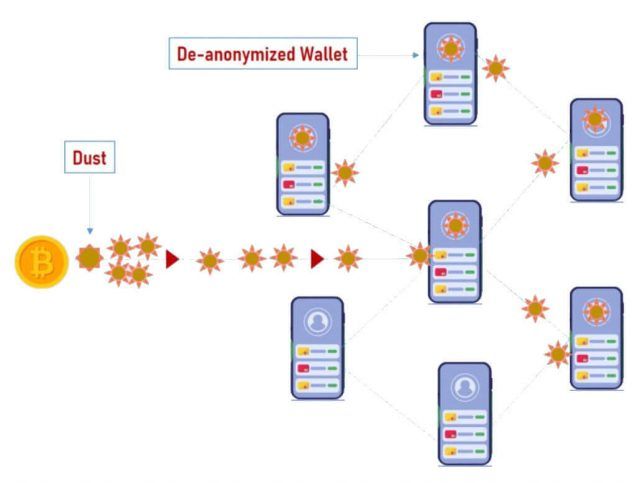Page Summary
A dusting attack sends small amounts of cryptocurrency to a wallet to uncover the identity of its owner. The attacker then uses this information for phishing scams. One example is when a dusting attack sends a coin or token to a wallet via an airdrop. When the victim tries to cash out the coin or token, the attacker can access his/her wallet through the faulty smart contract attached to the coin or token.

How can a dusting attack uncover my identity?
Because the attacker sends dust to all wallets you use across multiple platforms, including centralized ones where you log in with an email account.
How can I protect myself against a dusting attack?
By using the dust sell feature available on exchanges like Binance, FTX, and Gemini. This feature allows you to convert all ‘’dust’’ to Bitcoin. A few Satoshi’s worth of a coin or token is considered dust.
Disclaimer
eToro is a multi-asset platform which offers both investing in stocks and cryptoassets, as well as trading CFDs.
Please note that CFDs are complex instruments and come with a high risk of losing money rapidly due to leverage. 51% of retail investor accounts lose money when trading CFDs with this provider. You should consider whether you understand how CFDs work, and whether you can afford to take the high risk of losing your money
This communication is intended for information and educational purposes only and should not be considered investment advice or investment recommendation. Past performance is not an indication of future results.
Copy Trading does not amount to investment advice. The value of your investments may go up or down. Your capital is at risk.
Don’t invest unless you’re prepared to lose all the money you invest. This is a high-risk investment and you should not expect to be protected if something goes wrong. Take 2 mins to learn more
eToro USA LLC does not offer CFDs and makes no representation and assumes no liability as to the accuracy or completeness of the content of this publication, which has been prepared by our partner utilizing publicly available non-entity specific information about eToro.
